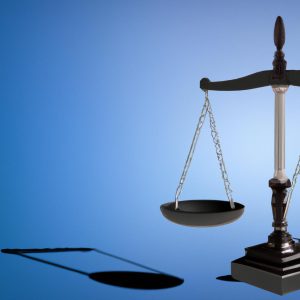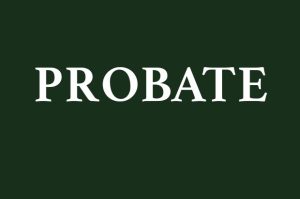Introduction
Estate planning is a critical process that allows individuals to protect and manage their assets during their lifetime and ensure a smooth distribution of their wealth to their beneficiaries after their passing. Trusts are an essential tool used in estate planning, providing a myriad of benefits, including asset protection, probate avoidance, and tax efficiency.
However, it is essential to understand that not all assets can be placed in a trust. Certain limitations exist on what can and cannot be held within a trust. In this blog, we, at Morgan Legal Group PLLP, will guide you through the assets that cannot be placed in a trust and the reasons behind these restrictions. Our experienced lawyers in New York City will provide detailed insights to help you make informed decisions regarding your estate planning.
The Basics of Trusts
Before delving into the assets that cannot be placed in a trust, let’s review the basics of trusts and how they function in estate planning.
What is a Trust?
A trust is a legal entity created to hold and manage assets on behalf of beneficiaries. It involves three key parties:
Grantor: The person who establishes the trust and transfers assets into it.
Trustee: The individual or entity responsible for managing and distributing the trust assets according to the terms of the trust.
Beneficiaries: The individuals or entities who will receive the benefits of the trust.
Revocable vs. Irrevocable Trusts
Trusts can be broadly categorized into two types: revocable and irrevocable trusts.
Revocable Trusts: Also known as living trusts, revocable trusts allow the grantor to retain control over the assets placed in the trust during their lifetime. The grantor can modify, revoke, or dissolve the trust as they see fit. However, upon the grantor’s death, the trust becomes irrevocable.
Irrevocable Trusts: Once established, irrevocable trusts cannot be modified or revoked by the grantor. The assets transferred into an irrevocable trust are no longer considered part of the grantor’s estate, offering various estate planning benefits.
Assets That Cannot Be Placed in a Trust
While trusts are versatile and can hold various types of assets, there are certain limitations on what can be placed within a trust. Let’s explore the assets that generally cannot be held in a trust:
1. Individual Retirement Accounts (IRAs) and 401(k) Accounts
IRAs and 401(k) accounts are retirement savings vehicles governed by specific tax laws. Placing these accounts directly into a trust can trigger adverse tax consequences. Instead, designated beneficiaries should be named on these accounts to ensure a seamless transfer of assets upon the account holder’s passing.
2. Health Savings Accounts (HSAs)
Similar to retirement accounts, HSAs have specific tax advantages for qualified medical expenses. Naming beneficiaries directly on the HSA is the appropriate method for passing these accounts to heirs.
3. Medical Directives and Powers of Attorney
Medical directives and powers of attorney are crucial documents that grant someone the authority to make medical and financial decisions on your behalf in the event of incapacity. These documents are not assets and, therefore, cannot be placed in a trust. Instead, they should be kept in a safe and accessible location.
4. Motor Vehicles and Real Property
In most jurisdictions, motor vehicles and real property (such as homes and land) are subject to specific transfer procedures. Placing these assets directly in a trust may result in unintended legal complications. Instead, they are typically transferred through specific procedures outlined in state laws.
5. Certain Types of Life Insurance Policies
While life insurance proceeds can be paid to a trust, certain types of life insurance policies, such as term life insurance, may not be suitable for trust ownership. Policyholders should consult with their insurance providers to determine the best course of action.
6. Specific Artistic or Intellectual Property Rights
Intellectual property rights, such as copyrights and patents, are governed by unique laws and regulations. While they may be held in certain specialized trusts, consulting with an experienced intellectual property attorney is crucial to determine the most appropriate approach.
7. U.S. Savings Bonds
U.S. Savings Bonds have specific requirements for ownership and transfer, and placing them in a trust can result in unintended consequences. Naming beneficiaries on the bonds is generally the recommended method for passing them on.
8. Restricted Stock Units (RSUs)
RSUs granted as part of an employee compensation package often have restrictions on ownership and transfer. It is essential to review the terms of RSU grants and consult with an experienced financial advisor to determine the best course of action.
Why Certain Assets Cannot Be Placed in a Trust
The limitations on placing certain assets in a trust are primarily driven by legal, tax, and practical considerations:
1. Tax Consequences
Certain assets, such as retirement accounts and life insurance policies, have specific tax advantages and implications. Placing them in a trust can trigger immediate tax liabilities or negate their intended tax benefits.
2. Legal Title and Ownership
Motor vehicles and real property require a clear legal title for transfer. Placing these assets directly in a trust can cloud their ownership status, leading to potential legal complications.
3. Specialized Laws and Regulations
Assets like intellectual property rights and restricted stock units are subject to specialized laws and regulations. Trust ownership may not align with the specific requirements governing these assets.
4. Efficient Asset Transfer
Some assets, such as retirement accounts, are already designed for efficient transfer to beneficiaries through beneficiary designations. Placing them in a trust may create unnecessary complexity and delay in the distribution process.
Alternative Strategies for Asset Protection
While certain assets cannot be placed directly in a trust, there are alternative strategies to protect and manage these assets effectively:
1. Beneficiary Designations
For assets like retirement accounts, life insurance policies, and HSAs, naming specific beneficiaries is a straightforward and efficient method to ensure seamless asset transfer upon your passing.
2. Prenuptial or Postnuptial Agreements
For individuals with substantial assets or complex financial situations, prenuptial or postnuptial agreements can provide asset protection in the event of divorce or separation.
3. Business Entities
For business owners, structuring assets within various business entities can offer protection from personal liability and facilitate seamless business succession planning.
4. Gifting Strategies
Gifting certain assets to beneficiaries during your lifetime can provide tax benefits and reduce the size of your taxable estate.
5. Trusts for Other Assets
While certain assets may not be suitable for direct placement in a trust, it is essential to consult with an experienced estate planning attorney to explore other trust options that align with your specific goals.
Conclusion
While trusts are powerful estate planning tools, it is crucial to understand the assets that cannot be placed directly in a trust. By working with an experienced lawyer, you can develop a comprehensive estate plan that effectively protects and manages all your assets in line with your unique objectives.
At Morgan Legal Group PLLP, our team of skilled attorneys in New York City is well-versed in all aspects of estate planning and can guide you in creating a tailored plan that suits your needs. Contact us today to schedule a consultation and secure the future of your assets.






